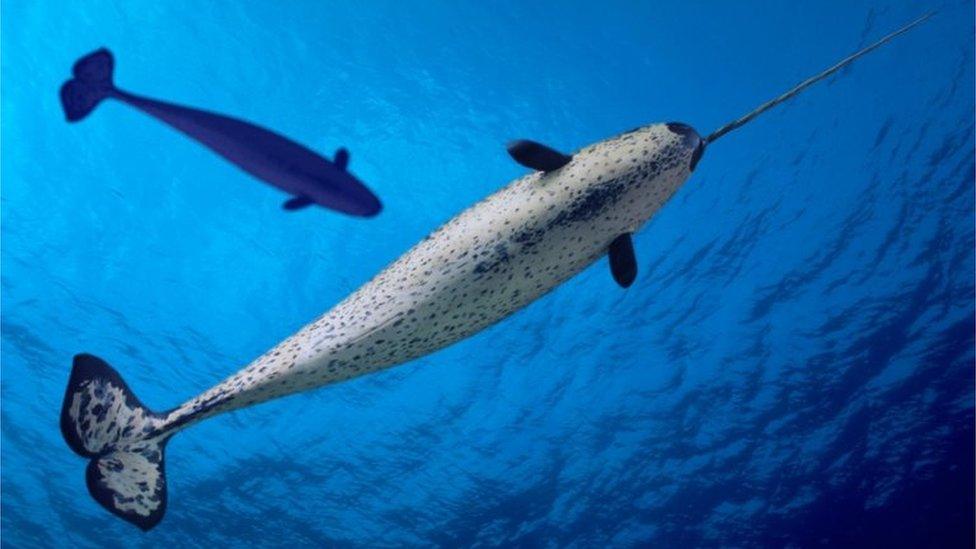Ivory trade: Hippos, walruses and whales should be protected too
- Published
- comments
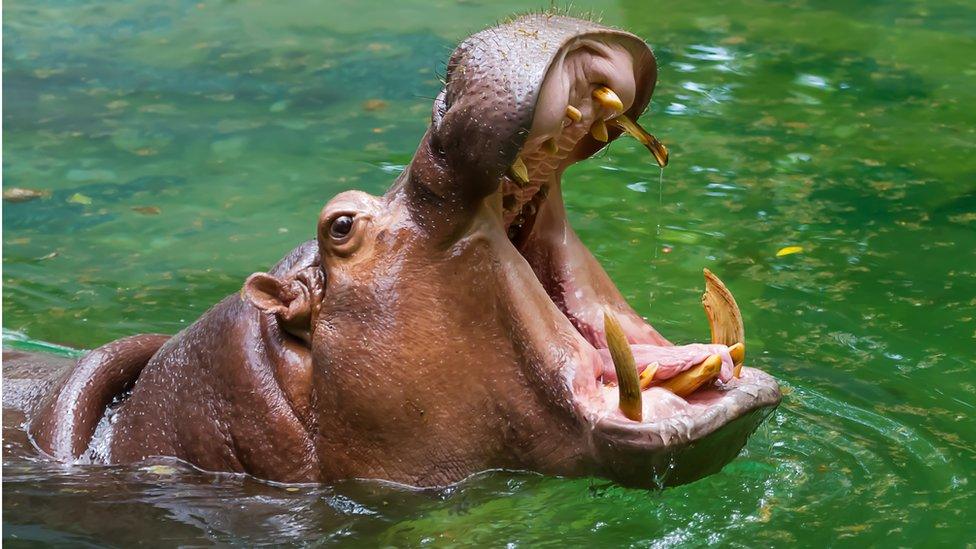
Hippos, walruses and whales could be given the same legal protection as elephants against poaching, under a new government proposal.
Ministers and conservationists are campaigning for the creatures to be included in the Ivory Act - a legal document that will introduce a near total ban on the import and export of items containing elephant ivory in the UK.
They have said that elephants are not the only animals at risk of poaching for their tusks or teeth, and that it is important to send a "clear signal to the rest of the world".
Prime Minister Boris Johnson has said that he will increase the amount of money the government gives to help tackle the illegal wildlife trade.
What changes do ministers want to make?
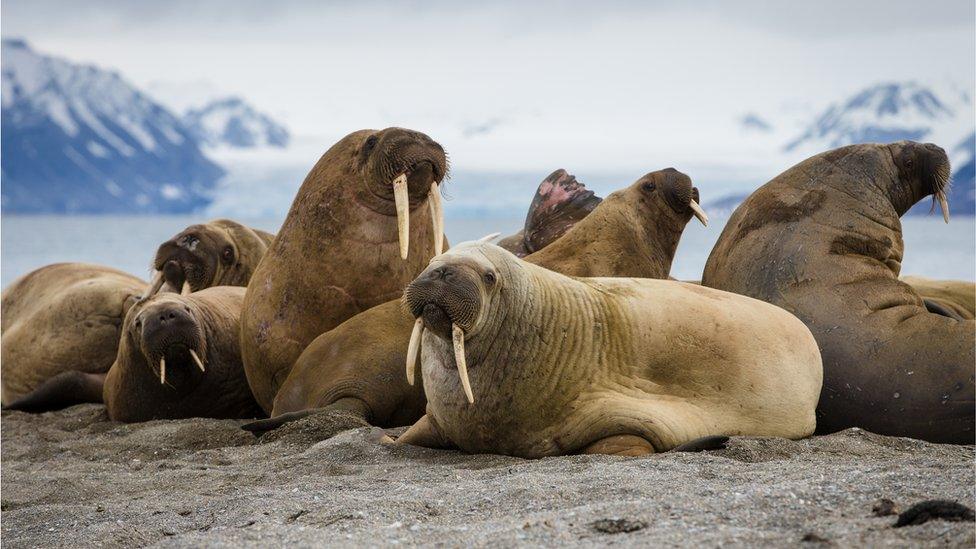
The ministers proposed plans include three options to update the Ivory Act:
Keeping the current ban on elephant ivory in the UK
Extending the Act to include hippo ivory
Extending it to also include: Hippos, walrus, killer whales, sperm whales and narwhals
"The Ivory Act is one of the toughest bans of its kind in the world and sends a clear message that we are doing all that we can to save elephants from the threat of extinction," said the International Environment Minister Lord Goldsmith.
"However the ivory trade is a conservation threat for other magnificent species such as the hippo, narwhal and walrus that are at threat.
"So I urge everyone to share their views to help ensure we can protect more animals from the grim ivory trade." Lord Goldsmith said.
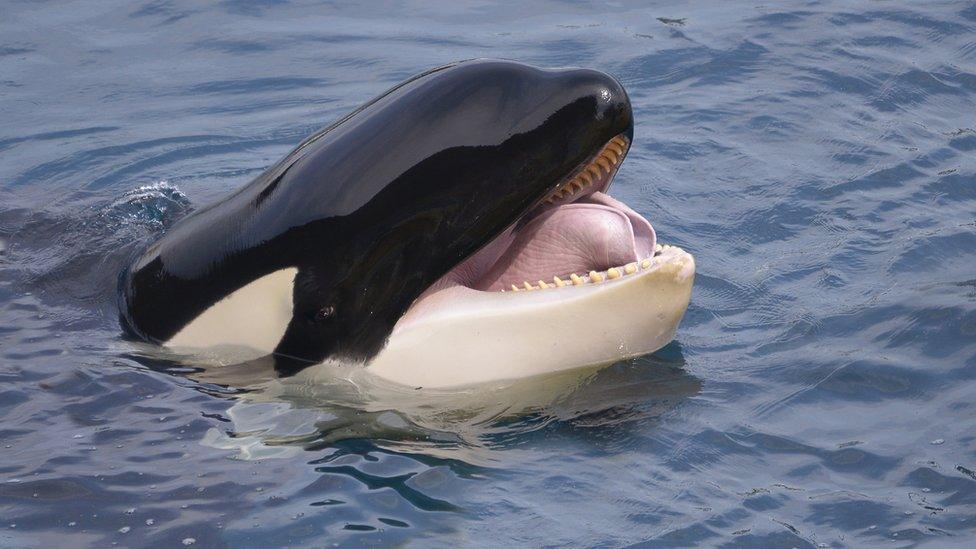
Dr Mark Jones, head of policy at the Born Free Foundation, said: "Closing down elephant ivory markets is an essential step towards securing a future for elephants.
"However, by focusing only on the trade in elephant ivory, other ivory-bearing species could suffer as ivory traders and consumers turn to alternatives.
"By taking this step, the UK can send a clear signal to the rest of the world that killing animals to carve ornaments from their teeth is not acceptable in the 21st century."
- Published5 October 2016
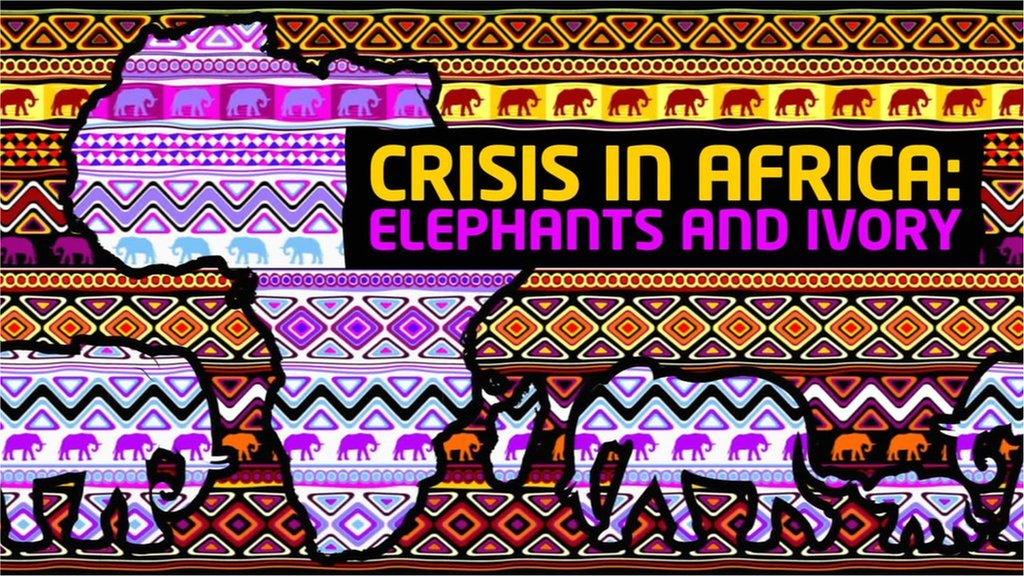
- Published11 May 2016
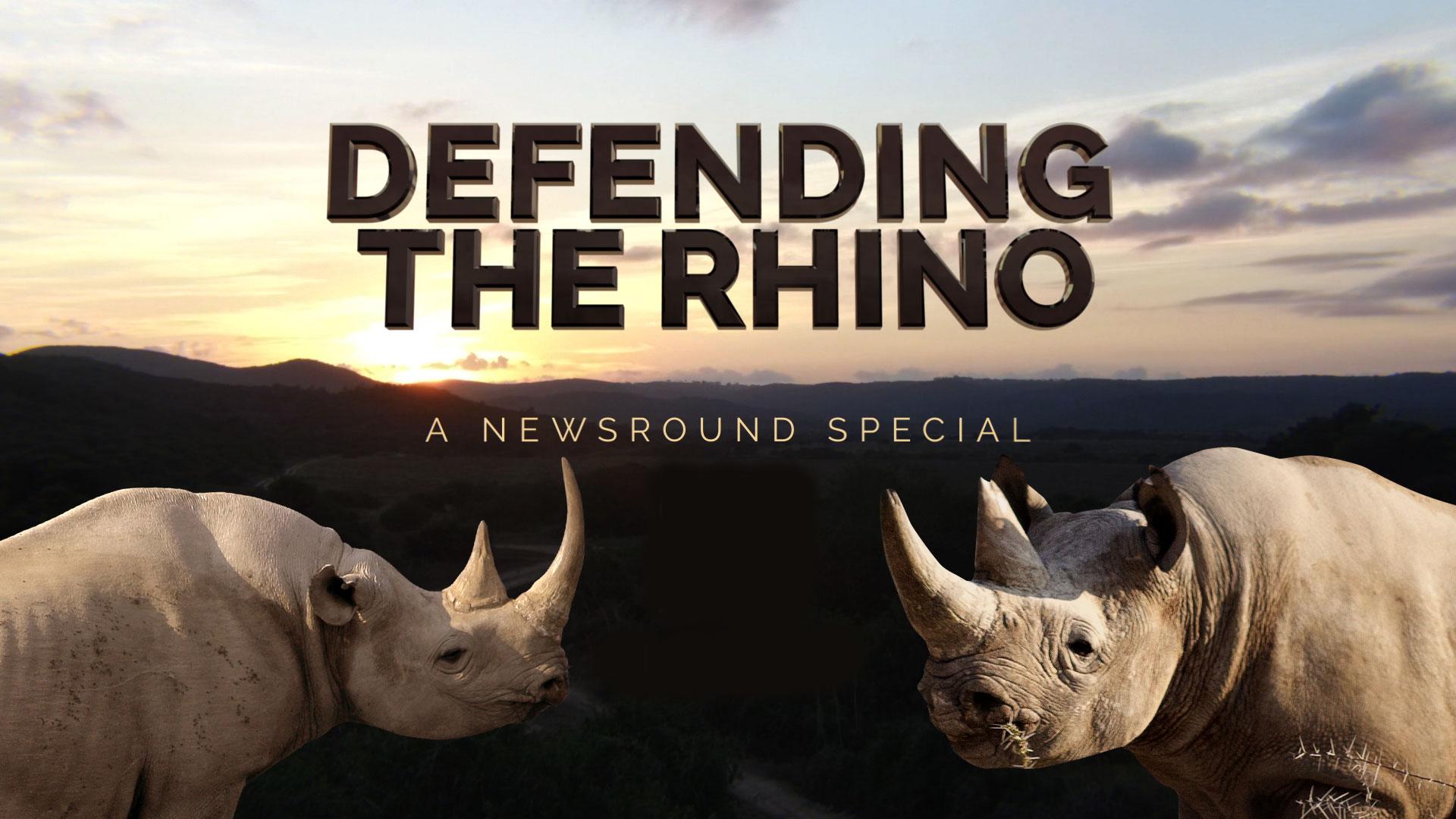
- Published13 March 2021
